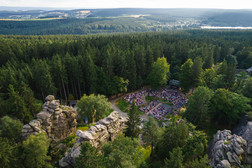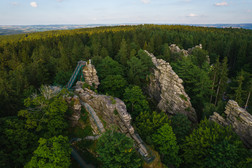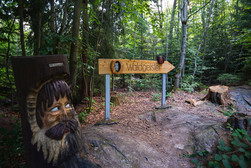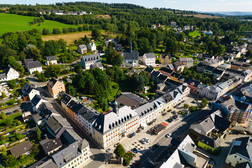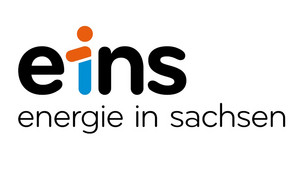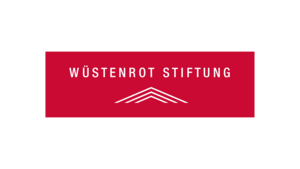The mining town of Ehrenfriedersdorf is located in the centre of the unique, mining-influenced cultural landscape of the Ore Mountains. The town is embedded in the scenic surroundings of the Greifenstein area with its popular Greifensteine natural stage, which offers numerous summer theatre performances and concerts, as well as a local recreation area at the Greifenbachstauweiher pond, which offers outdoor recreation in the Greifensteine leisure pool, among other things. Ehrenfriedersdorf is also a central part of the UNESCO World Heritage Site of the Erzgebirge/Krušnohoří Mining Region, with a mining history stretching back over 800 years: the town was settled in the 12th century and the first documentary mention dates back to 1339. The upswing came with the discovery of tin.
Today, you can discover the former Sauberger main shaft and the "Zinngrube" visitor mine, an authentic cultural monument to the history of tin ore mining. The "Bergbaulandschaft Ehrenfriedersdorf " also includes man-made trenches, ditches and tin soaps, which show how man has intervened in nature since the Middle Ages. Today, around 4,500 people live in Ehrenfriedersdorf, who preserve the mining heritage and maintain the traditions of Erzgebirge folk culture - including in the "Erzgebirgs Musik Archiv", which presents a private collection of around 3,000 Erzgebirge songs.
Carl Emanuel Wolff: Wild boars
Art and sculpture trail PURPLE PATH
The bronze wild boars by sculptor Carl Emanuel Wolff are reminiscent of the legend of the first tin discovery. Without a plinth, they stand dynamically outdoors at the Ehrenfriedersdorf tin mine and invite you on an imaginary journey through art and history. Carl Emmanuel Wolff was born in Essen in 1957. He now lives and works in Essen and Dresden.
